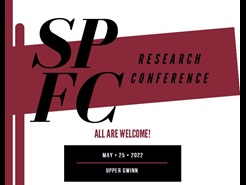Faculty Sponsor(s)
Peter Rivera
Presentation Type
Event
Primary Department
Marriage and Family Therapy
Description
There is a growing increase in the downfall and degradation of romantic and sexual relationships, due to the multi-layered stressors and aftermath of the pandemic (Montanaro et. al, 2022) (Luetke et. al, 2020). The sudden rise of pet adoptions during the global pandemic also sparked a researching curiosity, with the opportunity to test and obtain any critical information for developing loving bonds and relationships with others. This proposal seeks to find data and information relevant to adult attachment with the inclusion of animal bonding. This includes exploration of resilience from feelings of loneliness or conflicted in a relationship. Proposed results discuss possibilities of data that may be inclusive towards supporting the hypotheses such as the demonstration of any correlation between animal bonding and thriving of romantic relationships during COVID-19. Further exploration is discussed at the end, which also includes the suggestion of extending the timeline of the research, to include a follow-up of additional data with participants in years ahead after the pandemic.
Copyright Status
http://rightsstatements.org/vocab/InC/1.0/
Additional Rights Information
Copyright held by author(s).
Road to recovery with fido: Are pet-human bonds predictors of healthy romantic relationships after the COVID-19 pandemic?
There is a growing increase in the downfall and degradation of romantic and sexual relationships, due to the multi-layered stressors and aftermath of the pandemic (Montanaro et. al, 2022) (Luetke et. al, 2020). The sudden rise of pet adoptions during the global pandemic also sparked a researching curiosity, with the opportunity to test and obtain any critical information for developing loving bonds and relationships with others. This proposal seeks to find data and information relevant to adult attachment with the inclusion of animal bonding. This includes exploration of resilience from feelings of loneliness or conflicted in a relationship. Proposed results discuss possibilities of data that may be inclusive towards supporting the hypotheses such as the demonstration of any correlation between animal bonding and thriving of romantic relationships during COVID-19. Further exploration is discussed at the end, which also includes the suggestion of extending the timeline of the research, to include a follow-up of additional data with participants in years ahead after the pandemic.


